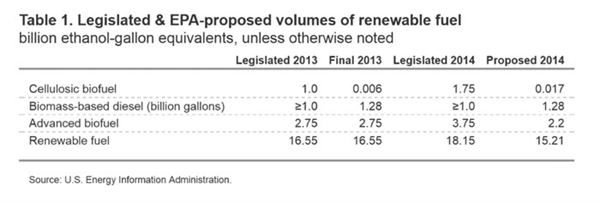|
EPA’s McCarthy Attempts To Build Bridges With Ag Community
SARA WYANT
WASHIGNTON, D.C.
After being roundly criticized by many farm organizations for new proposals dealing with clean water and proposed changes in the Renewable Fuel Standard (RFS), the head of the U.S. Environmental Protection Agency (EPA) sat down in a USDA briefing room recently with a clear message for the agriculture community: Let’s be friends.
“Agriculture and ranchers were really our first, original conservationists. They care as deeply about water quality and clean land and the air we breathe as I do,” she emphasized during a briefing with some of the nation’s leading farm broadcasters and communicators. “One of the most important things that EPA can do is to establish a much better relationship with the agricultural community.”
“Every farmer I have ever met has reminded me of how important they are to human health. They are providing food, fuel and fiber that we need to continue to live well and continue to grow the economy,” she continued in her thick Boston brogue. “I want to hang out with these people. I want them to be my friend. I want to establish a trusting relationship……to have really honest discussions.”
While touting some of her efforts to reach out to the farm community, such as the time-honored eating of a pork chop at the Iowa State Fair last summer and a recent private breakfast meeting with members of the National Cattlemen’s Beef Association, McCarthy dove head first into some of the most contentious issues facing farmers and ranchers.
The EPA recently proposed a new rule to define “waters of the U.S.” which, in 111,000 words, is supposed to clarify which types of agricultural practices might be subject to permitting.
“It’s incredibly important that we move this rule forward because it not only preserves the exemptions that agriculture has enjoyed under the Clean Water Act for decades but we worked very hard with folks in this building, at USDA, that we make clear what this rule does and doesn’t do and that it clearly preserves those exemptions but went a little bit beyond that,” she emphasized. “If we didn’t make these things clear, I need to make them clear in the final rule.”
But groups like the American Farm Bureau Federation and others want to “ditch” the proposed rule by the EPA and the Army Corps of Engineers regarding the definition of the waters of the U.S.
“This rule is an end run around congressional intent and rulings by the U.S. Supreme Court, alike,” American Farm Bureau Federation President Bob Stallman says. “Congress and the courts have both said that the 50 states, not EPA, have power to decide how farming and other land uses should be restricted. It’s time to ditch this rule.” Among other things, AFBF says the rule would expand federal control over land features such as ditches and areas of agricultural land that are wet only during storms.
More flexibility on the RFS?
While McCarthy gave no indication that she intends to change course on the Clean Water Act definition, McCarthy seemed to indicate more flexibility on the Renewable Fuel Standard (RFS).
The RFS requires increasing amounts of biofuels such as ethanol to be blended into U.S. gasoline and diesel supplies through 2022, beginning with 9 billion gallons in 2008 and ending at 36 billion gallons in 2022.
While EPA has set requirements for cellulosic biofuels well below the legislated volume targets for such fuels in past RFS program years, the proposed rule for the 2014 RFS program is the first time that the agency is seeking to set total renewable fuel and advanced biofuel requirements below the legislated targets. See table 1.

Citing lower overall gasoline demand, she said the EPA was “significantly challenged this year by the high increase in the numbers in the statute by what we believed was an inability to get all of the ethanol into the system which could have impacted the viability of the RFS.”
McCarthy said she has probably heard more concerns about the proposed RFS rule – from both Democrats and Republicans – than on any other topic. The “good news” she said is that it is a proposed rule and the agency is in the final stages of drafting with hopes of moving forward with the interagency approval process in June.
“I’ve been concerned about the disappointment I’ve seen the faces of those farmers. I’m concerned that overall, that this rule…has not just impacted corn ethanol producers but it’s had a chilling effect on the renewable fuels market as a whole,” she emphasized. “I think you will see that we listened to the comments and these numbers will reflect those comments.” ∆
SARA WYANT: Editor of Agri-Pulse, a weekly e-newsletter covering farm and rural policy. To contact her, go to: http://www.agri-pulse.com/
|
|